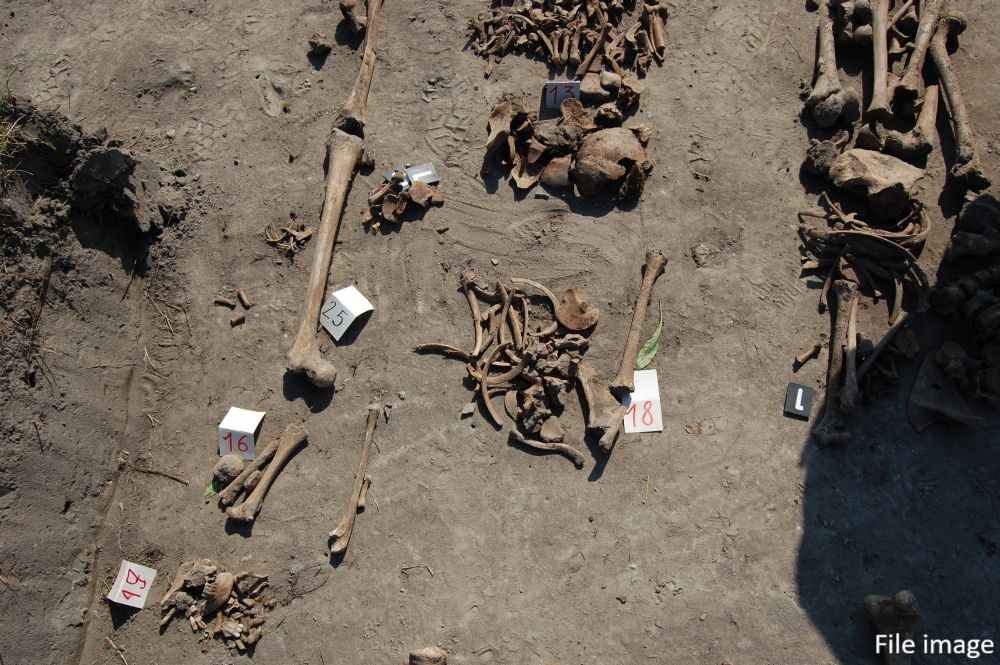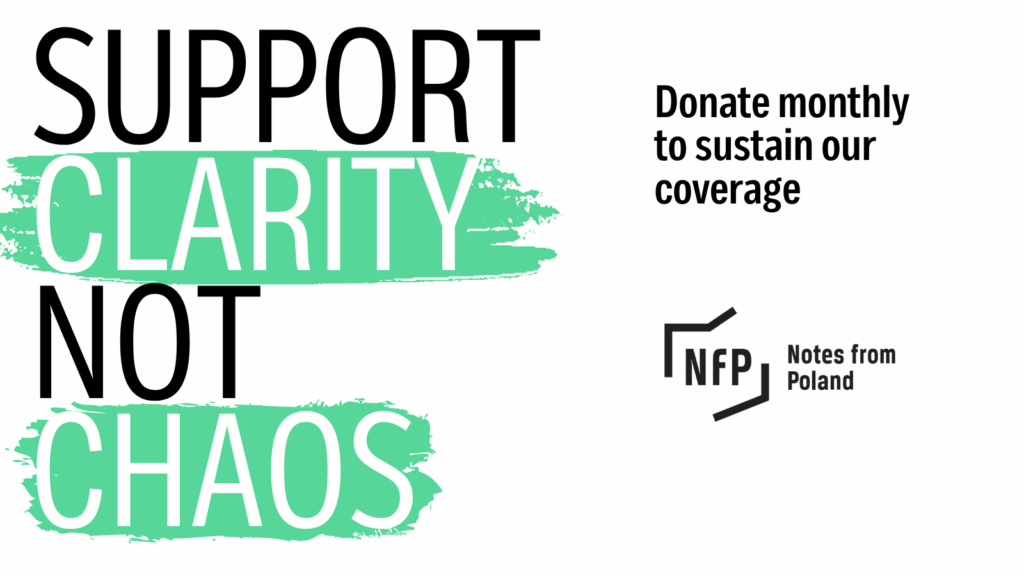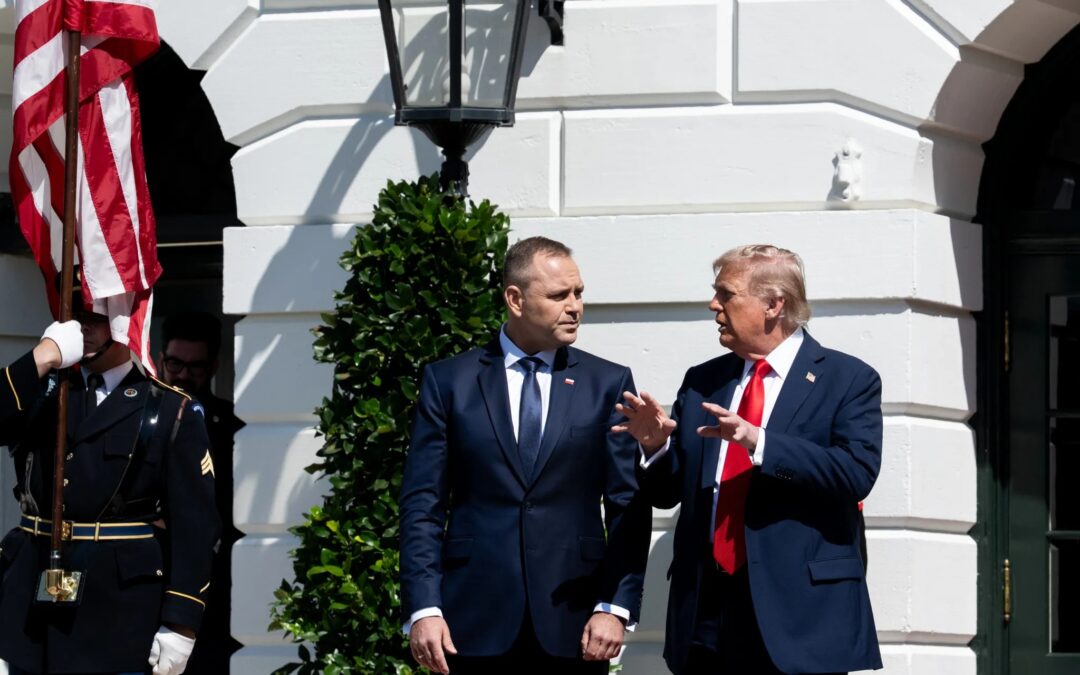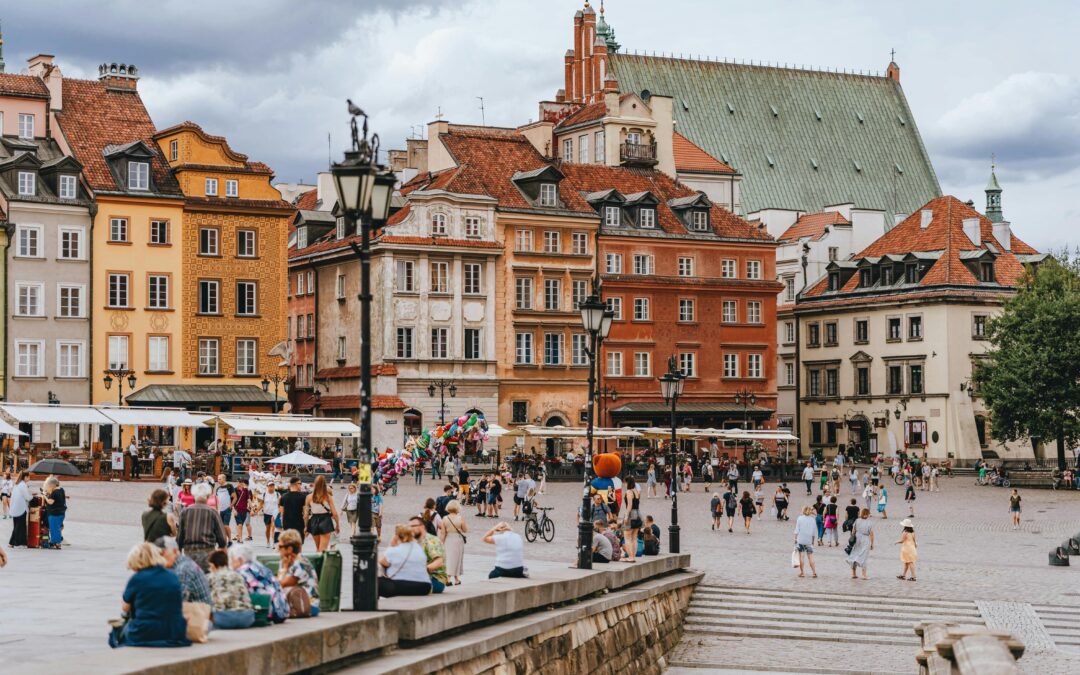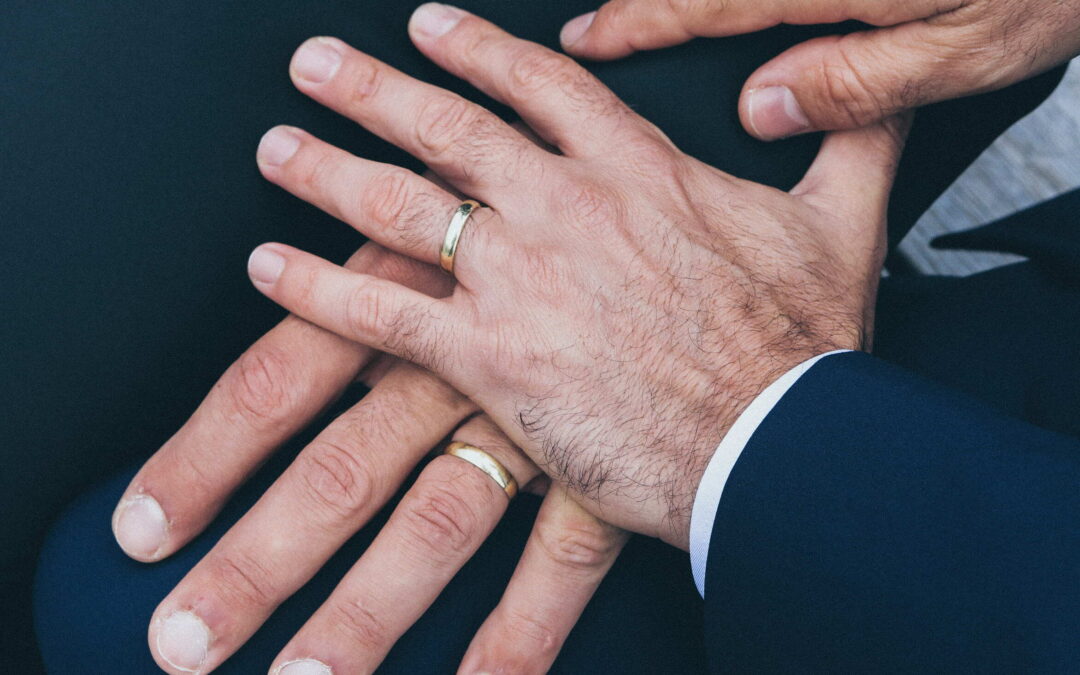Keep our news free from ads and paywalls by making a donation to support our work!

Notes from Poland is run by a small editorial team and is published by an independent, non-profit foundation that is funded through donations from our readers. We cannot do what we do without your support.
Ukraine has granted permission for Poland to carry out further exhumations on its territory of Polish victims of massacres carried out by Ukrainian nationalists in World War Two.
That difficult wartime history has long soured relations between Warsaw and Kyiv. But, following a diplomatic breakthrough in January, the latest decision marks the second time this year that Ukraine has granted permission for Poland to carry out exhumations, which were previously banned.
“I’m starting this week with good news for relations between Ukraine and Poland,” wrote Ukrainian ambassador Vasyl Bodnar on Monday. “I have just signed a note granting the Polish side permission from the Ministry of Culture and Strategic Communications of Ukraine to conduct exploratory work in the village of Ugły.”
In that village – which was located in Poland before the war but is now part of Ukraine – the Ukrainian Insurgent Army (UPA) killed over 100 ethnic Poles on 12 May 1943 as part of the broader Volhynia massacres that took place between 1943 and 1945 and resulted in the deaths of around 100,000 Polish civilians.
Most of the victims in Ugły were buried in a mass grave a few days after the crime. One of their descendants, Karolina Romanowska, who is head of the Polish-Ukrainian Reconciliation Association, had submitted a request to Ukraine for search and exhumation work to take place there.
“My family has been waiting for this for over 80 years!” she wrote on social media, thanking Ukraine for approving her application. “This means an official Christian burial for members of my family in Ugły.”
She told the Polish Press Agency (PAP) that exploration work should now begin “before the end of this year”. Bodnar, meanwhile, said that Ukraine had “invited the Polish side to agree on the details” of how the work would take place.
The Ukrainian ambassador also confirmed that Kyiv is processing further applications for exhumations submitted by Poland. “We firmly and openly continue the implementation of previous Ukrainian-Polish arrangements regarding search and exhumation works,” he wrote on social media.
Last week, Bodnar said in an interview with the Ukrinform agency that Ukraine may soon issue permission for exhumations in Huta Pieniacka, where in 1944 Ukrainian members of the German-Nazi SS killed around 850 people.
Ambasador @VasylBodnar właśnie ogłosić, że jest oficjalna zgoda na poszukiwania i ekshumacje co oznacza na oficjalny chrześcijański pochówek dla członków mojej rodziny w Uglach. Moja rodzina czekała na to od ponad 80 lat!
Dziękuję 🙏🏻— Karolina Romanowska (@KarolaAdamiec) October 13, 2025
In 2017, Ukraine imposed a ban on searches for massacre victims in response to the dismantlement of a UPA monument in Poland. However, in January this year, Poland announced that it had reached a “breakthrough” agreement with Ukraine to allow exhumations to resume.
The first has already taken place, leading to the discovery of the remains of around 42 Poles believed to have been massacred by Ukrainian nationalists in 1945 in the former village of Puźniki. Last month, they were reburied in a funeral ceremony attended by the Polish and Ukrainian culture ministers.
The diplomatic agreement also allows Ukraine to exhume the remains of Ukrainian soldiers buried on Polish territory. Two weeks ago, the first such work began in the village of Jureczkowa in southeast Poland.
Poland has permitted Ukraine to begin exhumations at a suspected mass grave of the Ukrainian Insurgent Army (UPA), which fought during and after WW2.
The decision is part of an agreement under which Ukraine has also allowed Poland to conduct exhumations https://t.co/FEHwYAjmJJ
— Notes from Poland 🇵🇱 (@notesfrompoland) September 27, 2025
Tensions over wartime history have long strained relations between Poland and Ukraine, who are otherwise close allies. Poland regards the Volhynia massacres as a genocide. But Ukraine rejects that description and has continued to venerate some of the individuals and groups associated with the massacres.
In a breakthrough moment, in 2023 the presidents of the two countries, Andrzej Duda and Volodymyr Zelensky, jointly attended a ceremony to commemorate the 80th anniversary of the massacres.
But tensions flared again earlier this year when Ukraine criticised Poland’s plans to create a new national holiday commemorating the victims of Volhynia. Poland has in turn regularly protested over the continued veneration in Ukraine of wartime nationalist leaders associated with the massacres.
Polish victims of massacres committed by Ukrainian nationalists in WWII have been reburied in Ukraine at a ceremony attended by officials from both countries.
Their remains were exhumed this year following a diplomatic breakthrough between Kyiv and Warsaw https://t.co/FQwhjXOZDb
— Notes from Poland 🇵🇱 (@notesfrompoland) September 6, 2025

Notes from Poland is run by a small editorial team and published by an independent, non-profit foundation that is funded through donations from our readers. We cannot do what we do without your support.
Main image credit: Leon Popek/IPN (under CC BY-NC-ND 3.0 PL)

Alicja Ptak is deputy editor-in-chief of Notes from Poland and a multimedia journalist. She has written for Clean Energy Wire and The Times, and she hosts her own podcast, The Warsaw Wire, on Poland’s economy and energy sector. She previously worked for Reuters.
